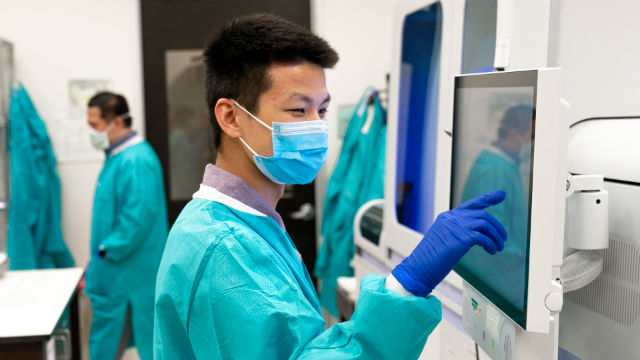UC San Diego Health pathology laboratory personnel are assisting doctors in treating coronavirus patients. Meanwhile, researchers at UC San Diego School of Medicine have been awarded $6.7 million in grants from the National Institutes of Health to develop and test technologies for noninvasive examinations of immune cells in tumors. These cells, known as macrophages, are involved in normal inflammatory responses in the body and are also found in solid tumors. The density of macrophages in a tumor can impact its response to treatment, making it crucial to count them noninvasively to determine the most effective therapies.
Professor Eric Ahrens from the Department of Radiology at UCSD School of Medicine stresses the importance of visualizing a patient’s inflammatory sites throughout the body. He highlights the value of accurate clinical diagnosis and precise therapeutic interventions. However, the current approach using biopsies is invasive, and some tumors may be inaccessible for biopsy. Therefore, the development of new whole-body imaging technologies is urgently needed.
The research team will use funding to test a technology known as TAM-Sense, which involves feeding macrophages small drops of a biologically inert dye for detection by magnetic resonance imaging (MRI). This technology will be tested in patients with recurrent head and neck tumors, marking the first application in human patients. In addition to cancer, TAM-Sense has potential clinical applications for other diseases with inflammatory components such as autoimmune disorders, cardiovascular diseases, and infectious diseases. The imaging tools developed could help pinpoint anatomical locations of inflammatory sites for more precise pain management.
As coronavirus continues to impact our lives globally, it’s vital that healthcare professionals have access to cutting-edge technologies that aid in accurate diagnosis and treatment planning. The development of noninvasive imaging technologies like TAM-Sense could revolutionize how we approach inflammation and disease diagnosis.
In conclusion, UC San Diego researchers are working tirelessly to develop innovative solutions that will benefit not only cancer patients but also those suffering from other diseases with inflammatory components. With funding from organizations like NIH and support from institutions like UCSD Health pathology laboratory personnel, this research holds great promise for improving patient outcomes and advancing medical care forward.



